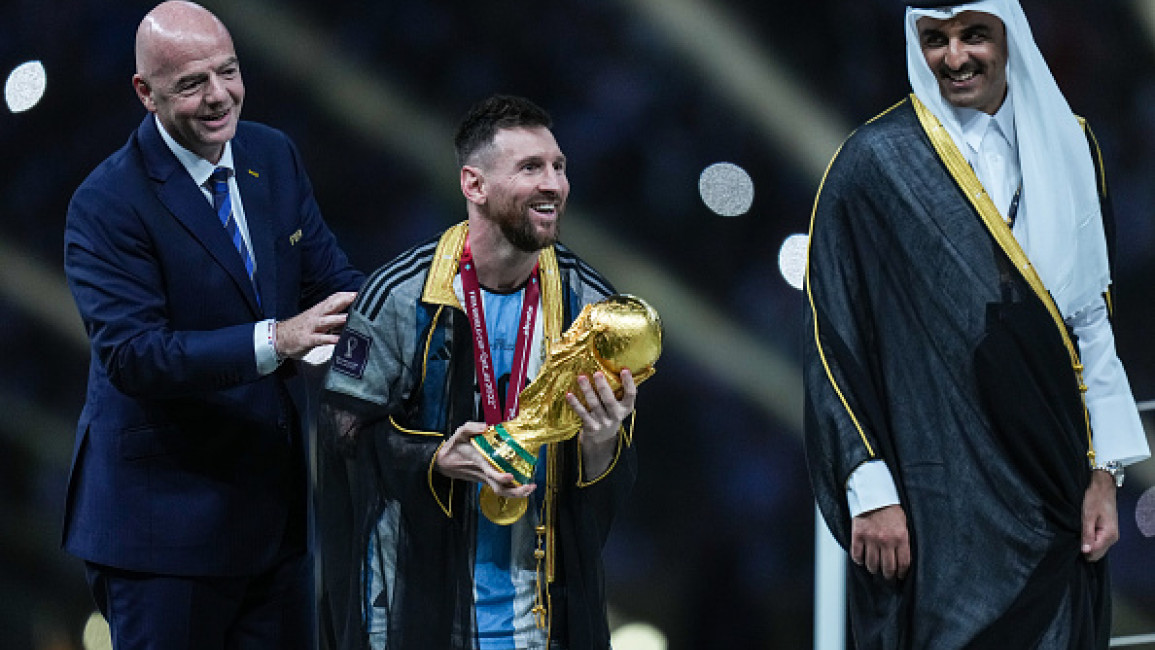World Cup boom for Messi's Bisht maker
Watching Sunday's World Cup final, Ahmed al-Salem was more emotional than most football fans when Qatar's emir placed a black and gold cloak - known in Qatar as a bisht - over the shoulders of Argentina's victorious captain Lionel Messi.
The garment Messi wore as he lifted the football trophy was a $2,200 piece, a traditional gown worn by men for weddings, graduations and official events -- and it was made by Salem's family company.
Salem watched Argentina beat France in a cafe near the family's store in Doha's Souq Waqif market, having earlier handed two of the delicate handmade cloaks to World Cup officials -- one in Messi's diminutive size and one to fit the taller French captain Hugo Lloris.
"We did not know who they were for and I was stunned," he told AFP of the moment when the emir, Sheikh Tamim bin Hamad Al-Thani, dressed Messi in the cloak.
Salem recognised his company tag and is now celebrating his own World Cup victory.
Bisht boom
The Al-Salem store, a longstanding bisht supplier to Qatari royalty, normally sells eight to 10 garments a day.
On Monday, the day after the final, sales shot up to 150, including three copies of the top-of-the-range garments made famous by Messi, said Salem.
"At one stage there were dozens waiting outside the store", he said.
"They were nearly all Argentinians," he added as he watched eight supporters of the new world champions sing their "Muchachos" (mates) anthem and take pictures of themselves while wearing a fragile bisht and carrying a copy of the World Cup trophy.
A stream of fans came into the shop as Salem spoke to AFP, and all of them applauded the emir's gesture.
"We were all happy when we saw that, it was a gift from one king to another king," said Mauricio Garcia as he tried on the cloak, but decided the price tag was too high to buy.
Some commentators, predominantly European, criticised Messi's shirt being covered for the trophy presentation.
But the moment was welcomed by Arabic social media users.
Salem and other Arab commentators explained the intention was to "honour" Messi and that the gesture had been misunderstood.
"When a sheikh dresses a person in a bisht, this means honouring and appreciating this person," Salem said.



